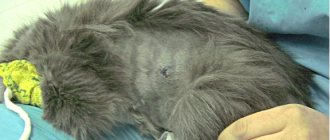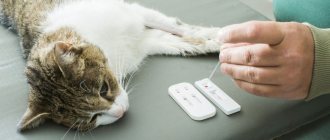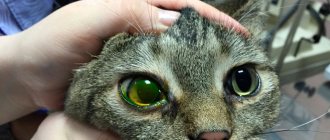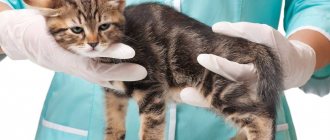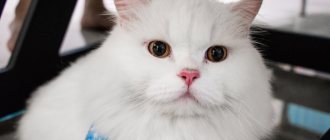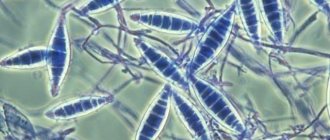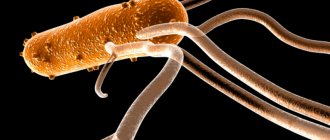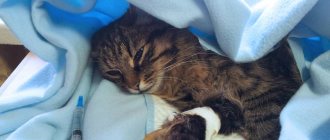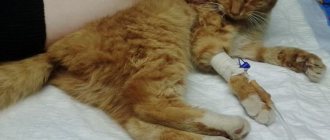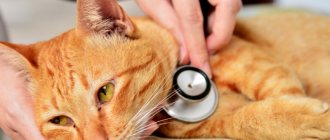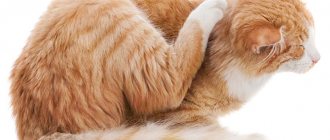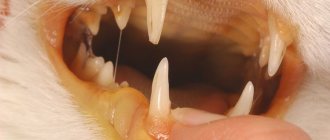4756Administration
A cat may have an upset stomach for a variety of reasons. The disorder may occur once and not occur again, or it may be chronic. At some point in an animal's life, digestive problems may arise.
Symptoms of indigestion can vary:
- decreased appetite along with vomiting, diarrhea, or constipation;
- increased or decreased feeling of thirst;
- dull and/or tousled coat;
- weight loss (in chronic situations).
© shutterstock
Digestive problems in cats can be acute or chronic. Acute gastric disorders are often self-limiting. Chronic indigestion requires a comprehensive veterinary evaluation to identify underlying causes and determine appropriate treatment.
Fecal parasite testing, complete blood count, feline leukemia and feline immunodeficiency virus tests, x-rays and/or ultrasound (if your pet is vomiting), and urinalysis and thyroid testing for more mature animals. Endoscopic or surgical biopsies may also be required in cases of chronic disorder.
If the disorder is accompanied by alternating diarrhea and constipation, vomiting that continues for several days, and such symptoms worsen, consult a veterinarian. This is important to prevent dehydration, infections, and liver or kidney complications. Veterinarians often give medications to relieve symptoms and also give intravenous injections to treat stomach upset and prevent dehydration.
Stomach upset in cats: causes and solutions
The digestive organs are one of the most important in the human body and his pets, since the body’s energy supply depends on them. If there is something wrong with the stomach or intestines, your pet's health will probably not be brilliant. The most common ailment is indigestion in cats. Pathologies of this type range from mild malaise accompanied by minor stool dilution to debilitating diarrhea, which in some cases can lead to the death of your pet.
Basic information
Vomiting and stomach upset can occur for a variety of reasons. In some cases, they are noticed only once, after which the animal’s gastrointestinal tract returns to normal, in others, there is a repeated effect on the digestive system, which is why the cat has cases of diarrhea all the time. As a rule, indigestion is not a fatal pathology; most often it is explained by stale or unsuitable food for the animal.
Thus, digestive disorders often occur when a cat switches to a new brand of cat food. Sometimes there are pets who eat quickly and greedily: this behavior also contributes to disruption of normal food absorption. An upset stomach can be caused by numerous hairballs, which is especially true for long-haired cats. In cases where diarrhea occurs rarely, from time to time, it makes sense to pay attention to the following possible causes:
- Sudden change in diet , including the brand of food used (even if from the same manufacturer). By the way, an adult cat may well have a disorder from milk.
- Hairballs in the stomach.
- Eating fish or chicken bones. However, in this case, indigestion is the least of all problems, since in the worst case scenario, gastric perforation and death from peritonitis are quite possible (feces often contain blood).
- Side effects from some medications (read the instructions).
- Eating spoiled food (a very common cause). It is generally accepted that cats are “delicate” creatures, and therefore they will not eat “overdue food” even on pain of starvation. This is far from true - even a not too hungry cat may well consume something “smelly” and then suffer from diarrhea.
- Pancreatitis or other disease of the endocrine glands.
- Parasites (may be indicated by diarrhea with mucus).
- Viral or bacterial infections.
In cases where disturbances in your pet occur quite often, you need to suspect the following causes of stomach upset in cats:
- Inflammatory bowel disease.
- Cancer (or even a benign tumor, since such a tumor can also lead to digestive disorders).
- Bacterial infections or mycoses .
- Metabolic disorders (hyperthyroidism, renal failure, liver failure, etc.).
- Disorders of gastrointestinal motility , which can also be caused by any of the diseases listed above.
- Other reasons.
Let us repeat once again that frequently recurring stomach upset in your cat may well indicate some very serious gastrointestinal pathology, including cancer. So even if it seems to you that there is nothing wrong, it is still better to immediately show the animal to an experienced veterinarian! Now we will tell you about simple home remedies that will help deal with diarrhea and vomiting in your cat.
Main causes of inflammation
A common cause of enteritis in cats is malnutrition . For example, an incorrect or unbalanced diet, poor quality water with chemical impurities, expired food, etc. Even a sharp transition from one type of food to another (for example, from homemade to professional) can provoke inflammation in the small intestine.
Other causes of enteritis in cats:
Mechanical damage. Injuries to the mucous membranes (for example, when swallowing a small tubular bone or foreign object) lead to stool disorders, pain in the epigastric region and the development of inflammation.
Late vaccination . This is a common cause of viral enteritis, which poses the greatest danger to the animal. If you are late with vaccination or do not vaccinate it at all, the virus can be transmitted to your pet from another sick animal.
Parasitic diseases . They are caused by parasitic worms (worms, helminths). When they enter a cat’s body, they most affect the small intestine and release toxic substances. All this contributes to the development of enteritis.
Chemical poisoning . Household chemicals, medications and even some types of plants can cause poisoning in your pet. They enter the body through food or accidentally, and then lead to severe inflammation of the small intestine.
Starvation diet
In general, this is the easiest and most accurate way to treat an upset stomach in a cat. Even the cat himself, when he feels that something is wrong with his stomach, voluntarily refuses food. The animal completely loses its appetite and eats only after its insides stop “signaling” about the disorder. However, during the time of domestication, cats lost their brakes somewhat and some animals, even when they are vomiting and have severe diarrhea, are still not averse to eating a bowl or two of food. And these desires of the pet should be sharply limited.
Just remove his bowl and hide all food from the table for about a day. When the cat is forced to starve, please take care of his unhindered access to any amount of clean drinking water. The pet must satisfy its thirst at any time. But! Cats should only be left without food for a day at a time. After this period, you can start giving them food, but only in small quantities, gradually.
If an animal eats heavily after fasting, it is highly likely that it will begin to vomit or develop profuse diarrhea. As for kittens. While adult cats can fast for 24 hours, small kittens cannot go that long without food. The maximum duration of fasting in this case is four hours (for the whole day).
After fasting, the animal is put on a gentle diet. You should feed the cat 4-6 times a day, in small portions. This should continue for five to seven days. What should you give your pet at this time? Ideally, you should use boiled chicken, cottage cheese and rice, as well as baby formula for this. These foods have the least impact on your pet's gastrointestinal tract.
Symptoms
The main symptoms of indigestion include:
- Vomiting is most often one-time, and may contain undigested food and hairballs. With infections or lesions of the stomach, foamy discharge and the appearance of the color of coffee grounds (a sign of bleeding) may occur. Vomiting should be assessed in relation to food intake, this will help determine the localization of the disorder. When there is a urge immediately after eating or within half an hour after, with wool or food, the reason lies in the stomach; when vomiting bile after a few hours, the intestines are “to blame.”
- Diarrhea - usually there is an increase in stool up to 5-6 times a day, the stool may be mucous, with a greenish tint.
- Constipation - along with diarrhea, indigestion can be accompanied by coprostasis. The first is associated with uneven and rapid peristalsis, and constipation is associated with dehydration or slow contraction of the intestines.
- Anorexia, or complete lack of appetite, is often associated with nausea, pain and fever.
- Restlessness, especially when needing to go to the toilet.
- Pain and bloating - this occurs due to the accumulation of gases or fecal impaction (a complication of long-term constipation).
These signs often serve as symptoms of other diseases, so for an accurate diagnosis it is necessary to undergo tests and determine the cause of indigestion.
Appetite stimulation
It is not uncommon for a cat recovering from a severe digestive disorder to have a very poor appetite. It needs to be stimulated by trying to lure the animal with the smells of pleasant food and its favorite food. Try boiling fish or chicken: it is possible that the smell of cooking food will stimulate your cat's appetite. Place a couple of the most appetizing pieces right under the animal’s nose to “seduce” it.
Cats that go more than two days without eating are at risk of serious degenerative damage to their internal organs. Therefore, it is very important that the pet eats at least something during this time, even if the amount of food is insignificant. Veterinarians may often prescribe appetite stimulants for cats that are reluctant to eat. They act very effectively and gently, “forcing” the animal to eat food.
Dehydration and its elimination
If your cat develops vomiting/diarrhea (or both), the main problem will not be lack of appetite, but dehydration, which is especially dangerous for kittens and young animals. To check whether your pet has developed it, simply pinch its skin and see how long it takes for the resulting fold to straighten out. If there is no dehydration, the skin will almost instantly return to its original state, while otherwise this process will take a decent amount of time. In this case, the animal is most likely close to a critical condition that needs to be stopped as soon as possible.
Most likely, restoring normal fluid metabolism will not be easy. Thus, ordinary drinking water in many cases causes vomiting, and therefore it is better to give water to a cat with an upset stomach with slightly warm boiled water . However, it is more useful to give the cat a slightly warmed saline solution, since it is much better absorbed by the body and restores water-salt metabolism. In many cases, however, it is necessary to administer the same composition intravenously or subcutaneously, since these methods allow you to cope with dehydration in the shortest possible time. In any case, a cat with signs of the latter should be quickly shown to an experienced veterinarian to prescribe more effective treatment.
What to do if there is fur in a cat's stomach?
If vomiting and eating disorders begin due to hairballs, regular medical Vaseline can help these hairballs release naturally. For this purpose, Vaseline melted in a water bath should be forcibly poured into the cat’s mouth, or you can simply smear it on the animal’s paws. The cat, being an extremely clean creature, will definitely lick it off, and the composition is guaranteed to end up in the stomach. This method is good during pregnancy, as no dangerous drugs are used.
As an option, give your pet a little oil from canned fish , just pour a little vegetable oil into the mouth, or give something fatty (but don’t get carried away with it). The better you take care of your cat's fur, the more often you comb it, the less likely it is for tangles to form in the gastrointestinal tract. If you suspect that there are fish or chicken bones in your cat's intestines, take him to the vet immediately!
Diagnostic methods
Diagnosis of pancreatitis is possible only in a specialized clinic; the following methods are used for this:
- Ultrasound of the abdominal organs. Determines swelling of the gland, changes in the echogenic pattern of the affected organ, and inflammatory phenomena.
- Blood tests: clinical and biochemical. They show excess levels of liver enzymes, glucose and bilirubin levels, cholesterol, ALT, alkaline phosphatase. Biochemistry reveals hypocalcemia and hypokalemia. Clinical blood test – non-regenerative anemia.
- Rapid test for pancreatic lipase.
- Biopsy and histopathology are the most informative methods. They make it possible to distinguish the acute form from the chronic one, to detect fibrosis, edematous phenomena, parenchymal tissue necrosis, and ductal hyperplasia.
Please note: due to the difficulty of timely diagnosis, most animals cannot be definitively diagnosed until after necropsy. That’s why it’s so important to be attentive to your pets and show them to veterinarians at the first suspicious symptoms.
Causes of diarrhea in cats and cats
In general, quite a few reasons can cause diarrhea in cats. This includes stress from moving, overeating, intestinal upset due to inappropriate food, poisoning, viral infection, bacterial infections and protozoa (cystospora and Giardia), and well-known worms (helminths) can also participate.
In addition to these reasons, there are also diseases of the gastrointestinal tract (all the same as in humans). Yes, a cat can have gastritis and it can also cause toilet behavior disorder.
At the same time, diarrhea is also scary because the animal loses weight and the body becomes dehydrated. Therefore, you cannot delay treatment; you can hold out until the moment when the cat’s kidneys fail due to dehydration.
Therefore, if you are not sure about the cause of diarrhea, put on a cat diaper (yes, there are such things) and run to the zoo clinic to determine the true cause of the diarrhea.
Or at least call the veterinarian to determine from the symptoms what measures need to be taken now.
Diarrhea is not a reason to see a doctor: adequate care for your pet at home
The best help for an animal is competent inaction. Hunger and drinking plenty of fluids are all a cat needs when it has diarrhea.
Diet
When the first signs of intestinal distress are detected, the cat should be stopped feeding. Animals often turn out to be wiser than people in this sense. Any owner knows that cats and dogs, as a rule, do not eat anything during an exacerbation of the disease. But for some reason, in many sources you can see a recommendation to immediately take the cat to the veterinarian if it has lost its appetite.
While recovering, the cat begins to actively ask for food
After a 12-hour fast, as a rule, improvement occurs. But there is a nuance. The consequences of intestinal disorder are enzymatic deficiency and disruption of intestinal microflora. While recovering, the animal begins to experience hunger and can, to the joy of the owner, greedily pounce on food. There are not enough enzymes in the body that can digest this, as a result the cat’s condition deteriorates, diarrhea resumes, and the frightened owner, forgetting about everything, rushes with the cat to the veterinarian, where the animal receives an injection of an antibiotic, which further aggravates the dysbiosis.
A recovering cat should be fed in small portions, and dairy products should be completely excluded from the diet, and in the first days, meat and eggs. If possible, food should be liquid and viscous. Rice porridge works very well in this regard, and it is better to take round-grain varieties of rice. As the cat's condition improves, we gradually return to a normal diet.
The best food during the recovery phase is sticky rice porridge.
Drink plenty of fluids
It is generally accepted that the main thing with an intestinal disorder is to kill the bacteria that caused it. However, it is not. The animal can cope with a harmful microorganism on its own in 4-5 days, having developed the necessary antibodies, but during this time the cat can easily die from dehydration. Therefore, the main task of a wise owner is not to treat the pet, but to prevent critical loss of fluid from the body.
The easiest way to feed a cat is with a syringe.
It is also important to understand that diarrhea causes the loss of not only fluid, but also various mineral salts. This means that simply giving your cat water is not enough. To solve the problem of dehydration due to diarrhea, there are drugs collectively called “oral rehydration agents.” They are sold in a regular pharmacy. Examples include:
- Regidron;
- Trihydron;
- Trisol;
- Hydrovit;
- Humana Electrolyte;
- Gastrolit;
- Glucosolan;
- Maratonic, etc.
You can prepare a healing mineralized drink yourself. Based on 1 liter of purified water we take:
- 2 tablespoons sugar;
- 1 teaspoon table salt;
- 1 teaspoon baking soda.
The prepared mixture is heated to the cat’s body temperature (39-40 °C), after which it is poured into the animal’s mouth, forcibly if necessary. It is best to use a disposable syringe without a needle for this purpose. And don’t feel sorry for the animal: if dehydration begins, such solutions will need to be introduced into its body using droppers.
If dehydration is not prevented, fluid will need to be administered through IVs.
Video: how to force water a cat
Drug treatment
At home, if a specific diagnosis has not been made for the animal, no medications should be used to treat diarrhea.
When talking about medications for intestinal disorders, we primarily mean sorbents. Veterinarians have different opinions about the need for their use, but there will definitely be no harm from such a drug if used correctly.
The simplest and cheapest option is activated carbon. The tablet should be crushed and mixed with warm water, and not given whole or in powder form. There are different versions regarding dosage: some doctors recommend taking one tablet per 1 kg of animal weight, others suggest taking the same dose per 10 kg. We can say with confidence that one tablet of activated carbon will not cause an overdose in an adult cat weighing 4-5 kg.
The second sorbent, which is also very popular, is Smecta. This drug coats the intestinal mucosa, preventing the absorption of toxins into it. The contents of the sachet are dissolved in 50 ml of water heated to +40 °C and administered into the animal’s mouth in one go. After 3-4 hours the procedure can be repeated.
Photo gallery: adsorbents used for diarrhea in cats
Filtrum STI is suitable for the treatment of diarrhea in both humans and cats
Smecta coats the intestinal walls and protects them from toxins
Enterosgel is a very popular adsorbent that is sold in regular pharmacies.
Activated carbon is cheap and effective
To restore the intestinal microflora, some experts recommend using probiotics (for example, there is a veterinary drug called Vetom 1.1), but in reality there is no need for this - wasted money and additional struggle with a cat who does not want to swallow the medicine.
Finally, if helminths are suspected, anthelmintics are used. However, you should first undergo the necessary tests, because when it comes to an acute intestinal disorder caused by another reason, an additional burden in the form of unnecessary medication can harm the animal.
Video: how to understand that a cat has helminths
To get rid of worms, the same drugs are used as for preventive deworming, for example:
- Drontal;
- Kanikquantel;
- Milbemx;
- Pyrantel;
- Prazinquatel;
- Prazicide;
- Pratel;
- Profender;
- Stronghold;
- Febendazole.
Photo gallery: anthelmintics for cats
Drontal is a very popular anti-worm drug.
Prazicide is a proven remedy, available in suspension and tablets
Dironet is available in the form of drops on the withers
Profender is intended for external use
Milprazone is a combination drug against helminths
Video: veterinarian about the causes of diarrhea in cats and methods of treating it
How to treat diarrhea in cats at home
I am very smart now and I advise you to run to the clinic the same day, but I myself was not that smart at all. What captivated me was that Hrundel behaved absolutely impudently and cheerfully, demanded meat, games, and only five runs a day towards the toilet reminded me that something was still wrong with the cat.
After consulting with the breeder, I decided to cook rice porridge with chicken for the cat (I’m too lazy to cook this for myself, but for the sake of your beloved cat and fresh air, you sacrifice everything).
Hrundel refused to eat the porridge, contemptuously spitting out everything he had stuffed into his squeaking mouth with his mother’s finger. And I ate, the porridge turned out to be delicious. The mission to cure the cat with rice porridge was a failure.
But the advice to fast helped us a little. The cat began to go to the toilet less often (since “cartridges for production” did not enter the mouth all day long).
First aid
When should you contact a veterinarian?
Intensity is important here. If a cat has serial, debilitating diarrhea, then, of course, there is no need to delay. Also, blood, mucus, and a sharp rotten smell. None of this bodes well.
Diarrhea lasting more than three days leads to dehydration, loss of protein in the body, disruption of tissue trophism, and, as a consequence, chronic renal failure (CKF), which will lead to irreversible changes. Hypothermia, convulsions, cerebral hypoxia, hypotension and even death.
If the diarrhea is profuse and lasts more than 4 times with an interval of 20-30 minutes, then you need to go to the veterinarian and quickly.
Prevention of diarrhea in cats
- Feed with premium and super-premium food and good food. Good food does not contain excess fats or chemicals that irritate the stomach. Don’t skimp on your cat’s health; treatment will be much more expensive.
Hide all household chemicals so that the cat cannot reach them even by accident.
Hide food, especially sweets! These furry thieves have a strange craving for sweets, but the result of such treats is often diarrhea in the cat.
Tablets for worms. Anthelminthic prophylaxis is carried out once every six months, the drug is selected according to the weight of the animal.
- Monitor your pet's appetite and stool. Often, problems with the stomach or liver begin with small things, there is also FCoV + FIP, coronavirus infection and infectious peritonitis, which are fatal. And one of the symptoms is intestinal upset in the cat.
Popular questions and answers
How long can diarrhea last?
Well, if a cat just ate your candy, then usually the diarrhea will stop within one day, provided that you gave sorbents and he fasted for at least one day until the evening.
If this is an infection or a viral infection, then the diarrhea can last until the cat itself is gone or the disease is cured, alas.
Hrundel and I's period of diarrhea lasted almost eight months, with occasional success in the fight.
What to do if your cat is vomiting and has diarrhea? Is this poisoning?
Vomiting and diarrhea are not always poisoning, but rather a systemic disorder. This is the most common clinical picture, ranging from obstruction to oncology.
These are general symptoms that don’t really mean anything.
What does yellow diarrhea mean in a cat?
What does green diarrhea mean in a cat?
What does white diarrhea mean?
Why does diarrhea in cats come from water?
Probably the safest (if I may say so) type of intestinal disorder in cats, because it is usually associated with poisoning with low-quality food or unusual food for the animal. Unless accompanied by other symptoms such as mucus, blood in the stool, loss of appetite, weight loss, lethargy and vomiting, diarrhea is usually a one-time intestinal protest in the animal.
The most dangerous thing here is dehydration of the cat’s body. Therefore, you need to give the animal water (even forcibly); you can give it a drip under the supervision of a veterinarian. Well, be sure to fast for a day so that the animal’s body can rest and cleanse itself.
Why does my cat have diarrhea with mucus?
Diarrhea with mucus in a cat is a very dangerous thing. This is one of the first symptoms of intestinal inflammation in an animal, which means that pathogenic bacteria have appeared and are multiplying in the intestines. If there are several animals in the house, it is better to isolate the animal with such signs, make a separate toilet and bowls so that other animals do not become infected. For example, viral peritonitis in cats, a fatal disease, has one of these symptoms.
After all, most infectious infections in cats and kittens occur through a common toilet. And if several animals are sick, it is very difficult to cure the infection, because the chain of reinfection is very difficult to interrupt without isolating them.
The cause of diarrhea with mucus in cats can also be enteritis and gastritis, diseases of the colon. In any case, you need to show your pet to a doctor with such symptoms as soon as possible.
How dangerous is bloody diarrhea?
At this point, we had been suffering with Hryundel’s stomach pain for three months already. But it never occurred to me to look at cat poop in the toilet, and it’s clear that the stool is liquid. But Hryundel the cat was clean and still managed to immediately smear all over the toilet with his paws. And then happily run around the apartment, leaving brown prints.
But one day the stars aligned and, passing by the toilet, I simply stood up and watched the process with silent reproach. And then a terrible discovery - there was blood in the cat’s stool.
“The cat is dying!” flashed through my head. The jokes were over and the cat and I rushed to the veterinarian again.
And we, by the way, have already appeared there more than once. They took biochemistry tests, felt the belly and generally tried to find the cause of the cat’s diarrhea. As a result, we changed 5 types of dietary food, but unfortunately nothing helped.
Don't let my humorous tone of the post distract you from the seriousness of the situation. Bloody diarrhea is often a sign of a fatal disease in cats, such as:
inflammation in the large intestine, tumors;
poisoning by poisons and chemicals, household chemicals;
traumatic injuries in the animal’s rectum, intestinal rupture;
acute pancreatitis in a cat;
Panleukopenia is perhaps the most terrible of viral diseases in cats.
To exclude all this, you need to immediately see a doctor in a good clinic, where there is an ultrasound machine.
This time at the veterinary clinic they took stool and blood tests, blood tests for viruses, and an ultrasound scan of the abdomen. The ultrasound showed that our stomach was intact, which means the death was cancelled.
Types of diarrhea
Depending on what exactly caused the intestinal disorder, the appearance, composition, consistency and even smell of stool can vary greatly. This circumstance often helps the doctor make the correct diagnosis, and the owner understand whether there are reasons to worry about the health of his pet.
The color of stool can presumably indicate the cause of diarrhea.
Table: state of stool as an indicator of the cause of diarrhea
| The color of stool and the presence of impurities in it | Possible cause of diarrhea |
| Green | Indicates the presence of a putrefactive process in the animal’s intestines, that is, banal food poisoning. |
| Yellow | Indicates problems with digesting food, as a rule, this is associated with impaired intestinal motility and problems in the small part of the intestine. |
| Orange | It indicates abnormal liver function (increased bilirubin synthesis), but may also indicate a severe form of dysbiosis and increased intestinal motility. |
| White | It happens when the bile ducts are blocked or there are other problems with the bile ducts (it is the bile that gives stool its brown color). |
| Red | Indicates that the inflammatory process takes place in the large intestine (colitis). |
| Light brown | It only says that the contents of the large intestine are excreted very quickly. |
| Black | May indicate the presence of digested blood in the stool. This happens with internal bleeding in the upper parts of the stomach (for example, with a perforated ulcer of the stomach or duodenum). |
| With foam or mucus | Indicates that an acute inflammatory process is taking place in the large intestine. It is also characteristic of the presence of helminths in the animal’s body. |
| With blood | It may indicate the presence of bleeding in the intestines or even more serious pathologies. |
Feces also differ in smell: stench in intestinal disorders is always present, but can have varying degrees of intensity. The thinner the stool, the more intense the miasma. However, the presence of extraneous “notes” in the smell of feces (sour, rotten, pungent, chemical) makes it possible to greatly narrow the range of causes that caused the disease.
The looser the stool, the more smelly it is.
These and other symptoms must be taken into account and be sure to describe to the doctor if you contact him. Only a specialist can diagnose a pet based on the color and smell of feces and prescribe drug therapy.
Stomach upset in cats: symptoms and causes
The most common causes and symptoms of stomach upset in cats include:
- Intestinal parasites:
Particularly common in kittens. Helminths clog the bile ducts and intestines, causing the pet's stomach to swell. In more severe cases, diarrhea, vomiting or anemia occurs. - Infectious diseases:
gastritis and panleukopenia are the causes of feline diarrhea mixed with blood. Accompanied by vomiting, fever, anorexia and dehydration. - Digestive system disorders:
Includes foreign bodies, hairballs, and any ingested substance that causes irritation. The cat becomes restless, loses appetite, and vomits. - Inflammatory bowel disease:
Causes chronic vomiting in the animal. Symptoms include soft stools, weight loss, and poor coat appearance. - Food intolerance:
Reactions to food include redness of the skin, hair loss, diarrhea and vomiting. - Intoxication:
chemical or food poisoning causes digestive disorders in the pet’s body. Signs of the disease include vomiting, diarrhea, increased drooling and rapid breathing.
Diarrhea
Diarrhea in cats is a common sign of intestinal inflammation. May be watery or mucous in appearance and may contain blood if intestinal inflammation occurs in the colon. In cases of colitis, common symptoms include abdominal tension and rapid and inappropriate bowel movements outside the litter box. Diarrhea in cats can have the following causes :
- intestinal parasites (roundworms, hookworms, giardia);
- viruses (feline virus (FIP);
- feline leukemia and panleukopenia (distemper);
- dietary/food allergies;
- hypersensitivity;
- metabolic diseases of the liver and pancreas;
- inflammatory bowel diseases;
- cancer.
© shutterstock
Treating indigestion at home
Before offering your cat some home remedies for stomach pain, it is necessary to differentiate the severity of the disease. If the abdominal pain or discomfort is minor, try treating your pet at home yourself. If there is excessive vomiting or severe diarrhea that leads to dehydration, contact your veterinarian immediately.
Severe cases, such as panleukopenia, require veterinary treatment. If the cause is related to parasite infestation, it is extremely important to prescribe adequate antiparasitic drugs.
Most home remedies for stomach problems in cats include a gentle diet, warmth and a quiet environment. Effective for mild clinical conditions caused by gastroenteritis and gastritis.
Cats love warmth, so the opportunity to rest in the hands of the owner will relieve the pets from any discomfort.
Some cats enjoy a gentle massage in the belly area, but remember that this is a particularly sensitive area, so not all cats will accept this offer. In these cases, it is enough to simply hug the animal with your arms or wrap it in a blanket.
Enteritis - what is it?
Enteritis is a chronic inflammatory disease of the small intestine . It is accompanied by dysfunction of the digestive system and dystrophic changes in the mucous membranes of the small intestine.
As an independent disease, enteritis is rare. It usually occurs in milder forms (for example, as gastroenteritis or gastroenterocolitis). These diseases are similar in symptoms and causes, but in terms of consequences, prognosis and mortality rates they are much more favorable.
Forms of enteritis:
- Primary. This includes cases of enteritis caused by food-borne infectious diseases (for example, E. coli). In 8 out of 10 cases they develop due to poor quality nutrition and water. When infectious pathogens enter a cat's body, they cause indigestion, pain and discomfort in the abdominal area.
- Secondary. This form of enteritis occurs with other non-food infections. Such dangerous and serious diseases include plague (Carré disease), panleukopenia, and salmonellosis. In this case, immediate contact with a veterinarian in Moscow is required, since these infectious diseases can lead to irreversible consequences.
Gentle diet
If your cat has stomach pain, diarrhea, or vomiting, but no other symptoms, it is recommended to temporarily remove available food and water that trigger the vomiting. After about 30 minutes, offer your cat some water.
It is necessary to control fluid intake so that the animal no longer vomits and does not become dehydrated. A fasting diet and plenty of water will help throughout the day.
If your cat is tolerating fluid intake, try offering some food. In this case, it is recommended to change the cat's diet.
Gradually introduce water soups and rice water into your diet. On day 3-4, offer your cat fermented milk products, ham or cooked turkey and chicken as food. Make sure the food is free of bones, salt and spices. Boil the poultry meat in water and serve in small pieces without skin.
Treatment of pancreatitis in cats
Treatment in each individual case is prescribed individually after an accurate diagnosis has been established and concomitant diseases and symptoms have been identified.
The therapeutic strategy is selected taking into account the complexity of the course, stage, form and neglect of the pathological process. Self-medication is unacceptable!
- Starvation diet for 1-3 days to reduce the enzymatic functions of the diseased gland.
- Infusion therapy to combat dehydration. The drugs used are: 0.9% saline solution, Ringer's solution, Dextran-70.
- Antispasmodic and painkillers: Spazgan, No-shpa, Baralgin, Papaverine, etc.
- Antiemetics: Metoclopramide, Maropitant, Cerucal, Chlorpromazine.
- Heart remedies: Camphor, Cordiamine.
- Enzymes: Pancreatin.
- In acute pancreatitis, Gordox is prescribed to reduce the secretion of digestive enzymes.
- Animals with anorexia are fed through a nasoesophageal tube or PEG tube. Mirtazapine is used to stimulate appetite.
- In case of complications, a plasma transfusion or a complete blood transfusion is prescribed.
- A course of antibacterial therapy is indicated only to prevent septic phenomena.
- In the most severe cases, laparoscopy is performed to remove the necrotic part of the affected organ.
For the most effective treatment, it is important to identify the disease as early as possible.
Benefits of using chamomile
Make a chamomile tea to relieve the symptoms of an upset stomach. Give your cat one tablespoon using a syringe without a needle twice a day. If your cat actively rejects chamomile and vomits again, offer water or chicken broth.
Chamomile has digestive, soothing and anti-inflammatory properties, making it useful and effective for treating stomach problems in cats. As mentioned earlier, it depends on the cause and severity of the disease.
If vomiting and diarrhea persist, veterinary treatment is necessary.
Prevention
- Regular feeding of high-quality food, balanced in composition.
- Regular use of vitamin and mineral complexes, especially in kittens.
- Preventive course use of food for hair removal and introduction of sprouted grass into the diet.
- Gradual transition to a new type of food - the process should take 10 days, during which you will gradually increase the new type of food, starting with 1 tablespoon. First, the new food is mixed with the old brand.
- Timely vaccination and deworming.
- Do not combine commercial feed and natural food.
